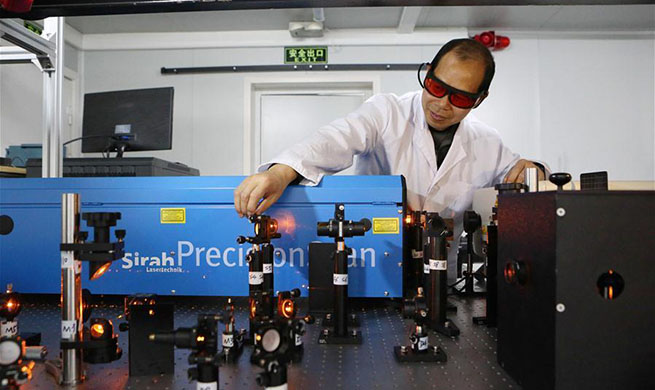CHICAGO, Feb. 20 (Xinhua) -- Total human carbon dioxide emissions could match those of Earth's last major greenhouse warming event in fewer than five generations, according to a news release posted on University of Michigan (UM) website Wednesday.
In a study, UM researchers found a way to mathematically compare modern carbon emissions to the emissions during the Paleocene-Eocene Thermal Maximum (PETM), a global warming event that occurred roughly 56 million years ago, on the same time scale.
The results showed current carbon emission rates are nine to 10 times higher than those during the PETM.
If emissions continue to rise, the total carbon accumulated in the atmosphere could hit the lowest estimate of carbon accumulated during the PETM, 3,000 gigatons, in the year 2159; and it would hit the maximum estimated emissions of 7,126 gigatons in 2278, Philip Gingerich, UM paleoclimate researcher and author of the study, calculated.
Humans have emitted roughly 1,500 gigatons of carbon as of 2016.
Scientists often use the PETM as a benchmark against which to compare modern climate change. UM study shows Earth is on track to meet this benchmark much sooner than previously thought, as the pace of today's warming far outstrips any climate event that has happened since the extinction of the dinosaurs.
The exact environmental consequences of PETM-like carbon levels are unclear, but the increased temperatures will likely drive many species to extinction with the lucky ones being able to adapt or migrate, said Larisa DeSantis, a paleontologist at Vanderbilt University. In addition, it will take thousands of years for the climate system cool down, she said.
"It's hard to compare biotic effects because the world during the PETM was quite different," DeSantis said. "We live in a very different world today, with different groups of animals, with humans being the dominant species ... but we know there are many negative consequences of dramatic warming on vast numbers of species, including our own."
The study was published on Jan. 30 in Paleoceanography and Paleoclimatology, a journal of the American Geophysical Union.

















